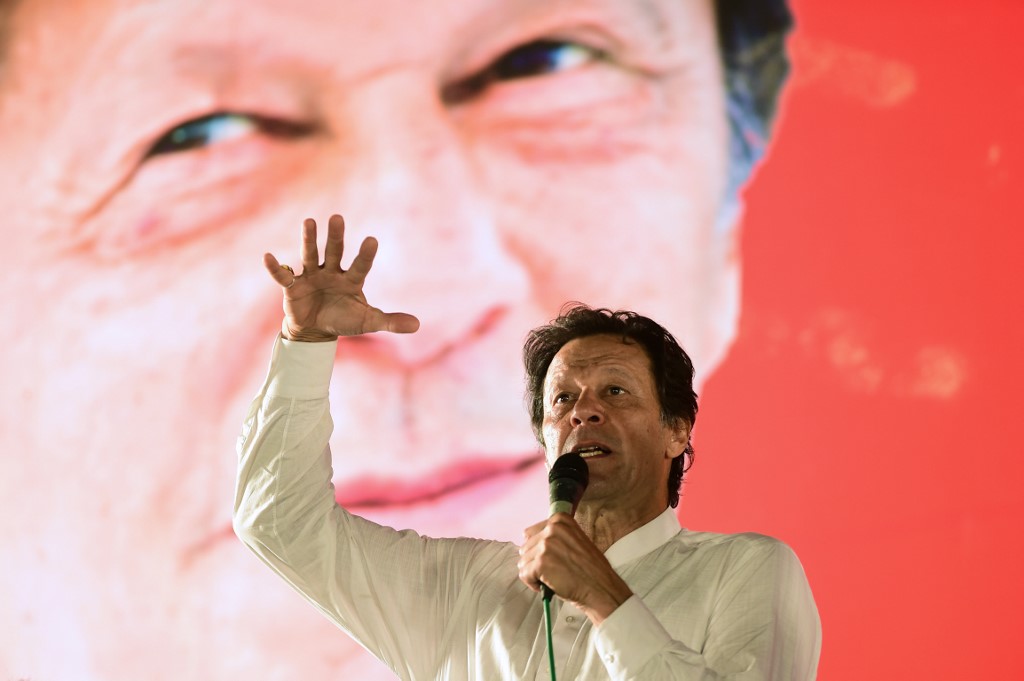KARACHI: Vanity Fair recently published a profile piece on Prime Minister Imran Khan, written by Aatish Taseer, which received little praise and a lot of backlash. Here are a few takeaways from the article:
1. Rich men profiling other rich men is no longer interesting to audiences:
We live in a world in which information production and information consumption, are both becoming increasingly democratised processes. In this new reality, a set of tweets can make you a viral sensation, a content creator, and even an agent of political change. This shift comes with its own set of problems (the proliferation of fake news is perhaps the most urgent), but the shift is also incredibly empowering because information consumers are no longer entirely dependent on the access of the rich and the privileged for content. Fortunately, one no longer needs an ‘exclusive’, Vanity Fair endorsed, peek into the world shared by Aatish Taseer and Imran Khan, in order to identify the colonial hangover, deep seated misogyny and identify crisis it is plagued by.
In a world in which content is being created and made accessible by the second, on different platforms, everywhere, content needs to be interesting, insightful, engaging and accessible. Touting your uncle as a cultural institution, your ex-girlfriend as a “minor” British royal and your access to exclusive parties to justify your decision to ‘profile’ a man who won’t give you an interview, is neither interesting nor accessible or insightful.
2. #TimesUp – stop giving space to predators:
Another empowering aspect of content distribution on social media is the way in which the medium allows for audiences to demand accountability and responsible content creation. When alleged sexual predators use their capital to get content creators to give them platforms through which they can ‘rebuild’ careers amidst allegations of sexual violence, critical consumers of information can see through it.
We live in a time in which there are economic consequences to sexual violence – and marginalised communities relentlessly organise to use social media platforms to amplify their voices against perpetrators of sexual violence and the socioeconomic capital that protects them. If a content creator gives space to an alleged sexual predator he will be recognised for the enabler that he is.
In his profile on Imran Khan, Taseer gives extensive room to Ali Zafar without a mention of the multiple sexual harassment allegations against him, or the fact that he is currently in court over those very allegations. He even goes as far as to promote him as “Pakistan’s biggest pop star”, and gives room to Ali Zafar’s inconsequential ‘spiritual musings’. While it’s difficult to guess at Taseer’s intention in using Zafar as a source (since he is unable to make any meaningful contributions to the piece and one is left guessing at his utility) – it’s important to note that Aatish Taseer has shown himself to be an enabler, and audiences are unafraid of pointing that out to him.
3. Content critique does not exist within a binary
If you critique a profile that critiques its subject, that does not have to mean that you support the subject and are willing to overlook their flaws, and it also does not mean that your critique is motivated by a need to defend the subject.
A content creator can make valid points, and perpetuate harmful stereotypes in the same breath. As a critical consumer it is important to not forego one for the other, and allow yourself to critically examine both, as you decide whether one outweighs the other and if that matters at all.
Those who took to social media to criticise Taseer’s profile on Imran Khan, were not necessarily motived by political affiliations – and accusing them of being so, only serves to undermine the very valid critiques of misogyny and elitism that they were bringing to the table.
And in the spirit of critical and even content consumption, here are some valid points made by Taseer in the piece which also serve as important takeaways:
4. The distance between the ‘day time’ and ‘night time’ Khan:
Taseer does an important job at highlighting the disparity between Imran Khan’s multiple selves. This is especially important given the prime minister and his government’s singular, and highly marketable self-righteousness used to oppress marginalised communities. From voting against legislation that would protect women from domestic violence, to perpetuating harmful narratives about minority groups in the face of a catastrophic blasphemy law that targets the marginalized. And all this, against a backdrop of an excessive youth that in no way fits into the ideas of ‘piety’ preached by the prime minister today.
Taseer’s article is most potent when it explores how Imran Khan has been highly successful in weaponizing populist tools and accumulating support by demonizing that which he represents.
”Khan is not of the people. If anything, he belongs to an elite even more glamorous and rarefied than the one he routinely attacks … Unlike other populists in the developing world, Khan is a man guessing at the passions of people he does not actually represent.”
Read: Beijing-Begging and other unfortunate typos
5. Good politicking goes hand in hand with a thorough practice in idea engagement:
My favorite excerpt from Taseer’s profile:
“Here, I remember feeling, was a man who had dealt so little in ideas that every idea he had now struck him as a good one.”
And that’s the tea.

 PHOTO: FAROOQ NAEEM / AFP)
PHOTO: FAROOQ NAEEM / AFP)










